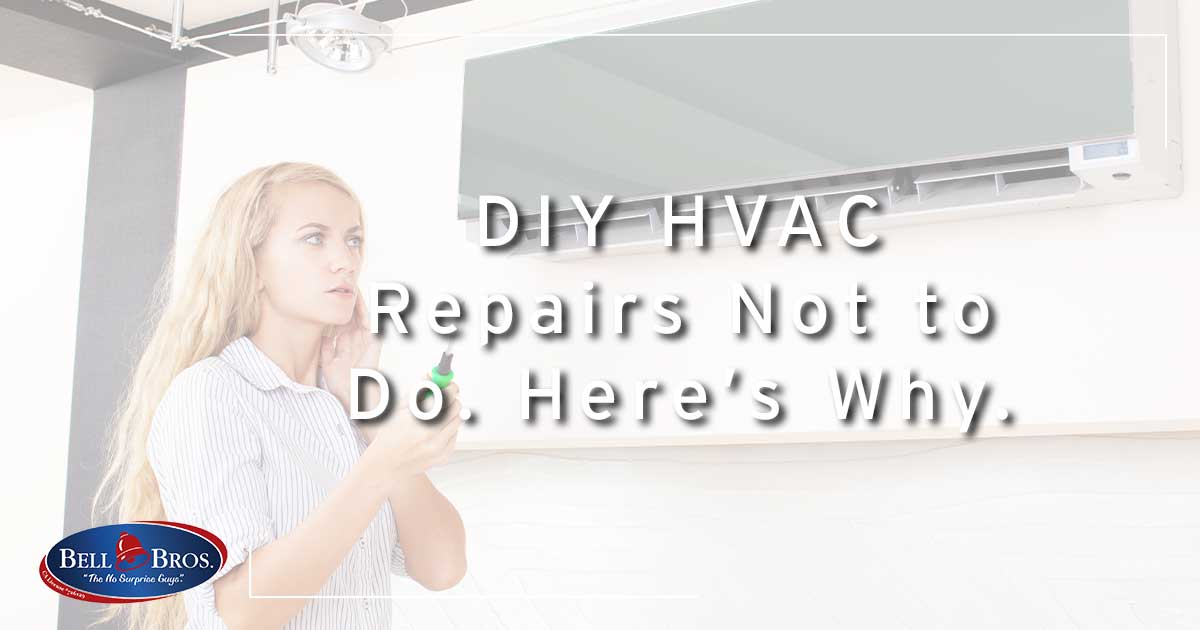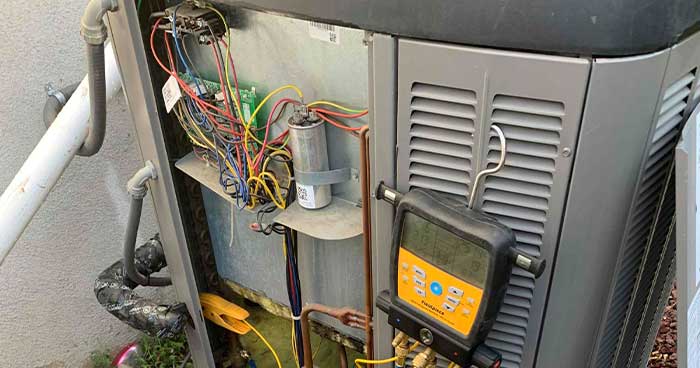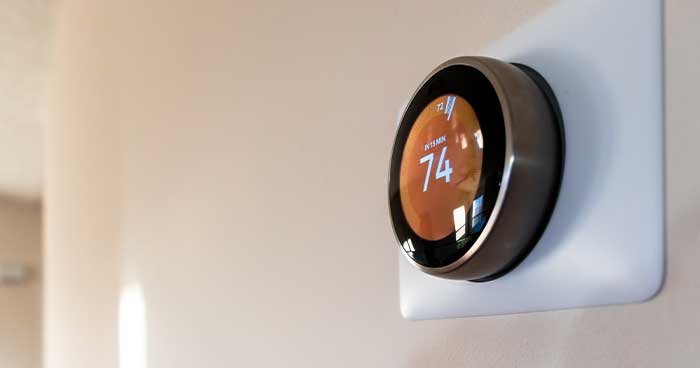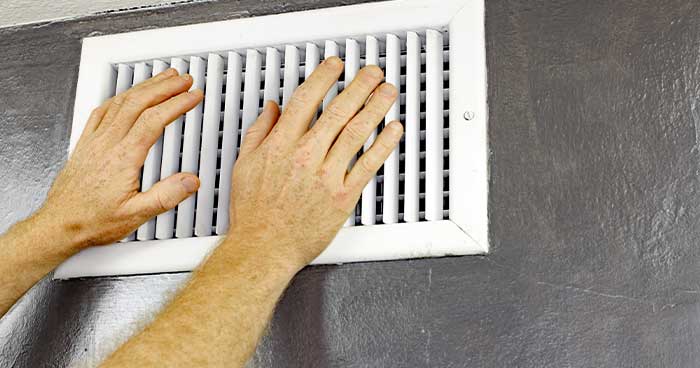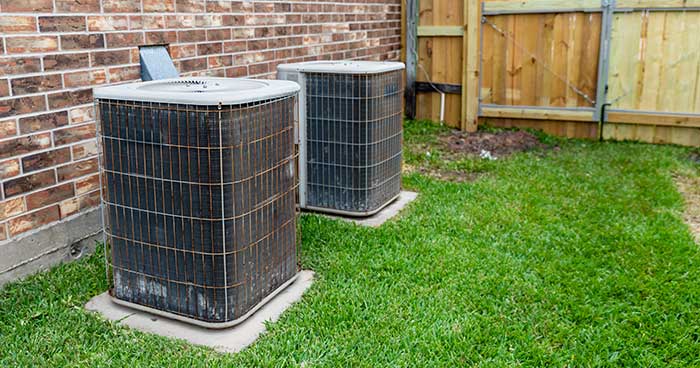DIY HVAC Repairs Not to Do. Here’s Why.
Any sort of AC repair and service should be left to the professionals. While there is a YouTube video for everything, HVAC repairs can be downright dangerous when not done properly. What those tutorial videos don’t show you are the years of experience and expert training certified HVAC techs go through. Here are some of the reasons it’s not a good idea to attempt DIY HVAC repairs.
Here’s Why you Shouldn’t try to DIY HVAC Repairs
Carbon Monoxide
Carbon monoxide is something that no one wants in their home. Unfortuantely, even the best DIY-er can run into issues that could lead to a carbon monoxide leak.
Electrical Issues
The electric wiring in your HVAC system is complicated and should be left to a professional. We’ve seen everything from small electrical fires to bodily injury from people attempting a DIY HVAC repair.
At Bell Brothers, all our technicians go through extensive training before they are able to go into someone’s home. A huge part of that training is about the safety precautions needed when working with electricity.
Unless you have a certified HVAC technician or electrician in your home, we don’t recommend trying to fix any electrical issues on your own.
Voiding Insurance Policies and Warranties
An easy way to void your equipment’s warranty is to try and fix something on your own. Most warranties have language saying that any fixes need to be done by a certified professional.
The same can be said for home insurance policies. When homeowners try to fix their HVAC equipment, and something goes wrong, they can’t take the claim to their insurance company. Why? Because usually the homeowner isn’t a licensed HVAC professional.
DIY HVAC Repairs that Usually Go Wrong
Changing the Thermostat
Most of our Sacramento and East Bay homeowners think changing a thermostat is easy. Unfortunately, the smallest, most seemingly easy task, may need to be done by a professional.
When it comes to smart thermostats, we also recommend at least asking an HVAC tech if your system can handle it. A big reason for this is because some older HVAC systems are not able to properly communicate with newer thermostats.
A second reason why the average homeowner should not change their thermostat is because of electrical wiring. Sometimes, when replacing an older thermostat, the wiring is loose or frayed. In these cases, the electrical needs to be fixed.
Blocking Room Vents
There’s a common misconception floating around that you can save money by shutting closed the heating and cooling vents in rooms that aren’t in use, like a guest room. Doing this is actually very bad for a few reasons.
First, that air needs somewhere to go. Just because a vent is blocked off doesn’t mean your HVAC system makes a smaller amount of air. It still produces the same amount of air. Instead of being distributed through the now blocked vents, the excess air raises the pressure in your HVAC system.
Second, this “quick fix” allows excess to build up so much that it can tear a hole in your ductwork. When ductwork is leaky, or has holes dust, dander, and other indoor air contaminates can enter your living space.
Cleaning the Outdoor Condenser
Just because your outdoor condenser is large and has a metal cage around it doesn’t mean it’s not fragile. The coils inside are actually quite delicate and need to be treated as such.
Oftentimes, homeowners think they can just spray the outside of the condenser and that’s it! Unfortunately, spraying a hose at the outside of the condenser damages the coils which in turn, damage your system.
DIY HVAC Repairs: What you Can Do
Clean Around the Condenser
If you want to try and do some DIY HVAC work, the best place to start is by frequently cleaning around your condenser.
Change the Air Filter
One of the best DIY HVAC maintenances you can do is routinely checking and changing your air filter. The hardest part of this task is getting access to an attic unit. Everything else is easy breezy.
It’s also important to check your air filter if you live close to a construction site and after fire season.
Battery Checks
Thermostats and carbon monoxide detectors are great tools, but only when they work. It’s important to make sure everything is in working order by checking the batteries every few months.
For professional AC repair and service, you can trust, call the number at the top of the screen or click here to request an appointment with the experts at Bell Brothers.


